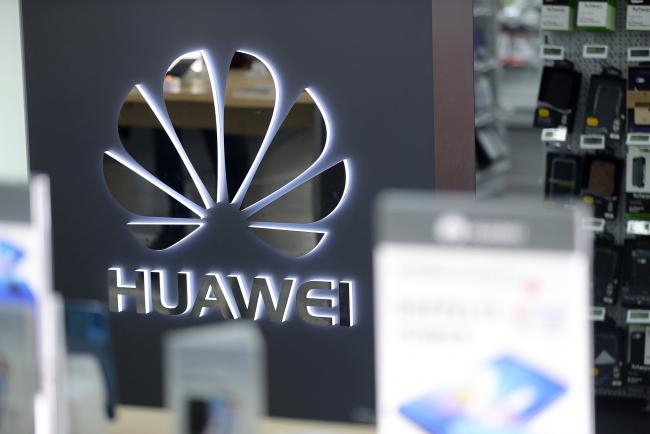(Bloomberg) -- Sign up for our new China newsletter, a weekly dispatch coming soon on where China stands now and where it's going next.
U.S. prosecutors filed criminal charges against Huawei Technologies Co., China’s largest technology company, alleging it stole trade secrets from an American rival and committed bank fraud by violating sanctions against doing business with Iran.
Huawei has been the target of a broad U.S. crackdown, including allegations it sold telecommunications equipment that could be used by China’s Communist Party for spying. The charges filed Monday also mark an escalation of tensions between the world’s two largest economies, which are mired in a trade war that has roiled markets.
In a 13-count indictment in Brooklyn, New York, the government alleged Huawei, two affiliated companies and Chief Financial Officer Meng Wanzhou of bank and wire fraud as well as conspiracy in connection with business in Iran. Charges filed in Washington state accuse the company of stealing trade secrets from T-Mobile USA Inc. and offering bonuses to employees who succeeded in getting technology from rivals.
The cases “expose Huawei’s brazen and persistent actions to exploit American companies and financial institutions, and to threaten the free and fair global marketplace,” Christopher Wray, director of the Federal Bureau of Investigation, said at a press conference in Washington announcing the charges.
Huawei didn’t respond immediately to requests for comment on the allegations.
Prosecutors said that Huawei concealed its relationship with Skycom Tech Co., a company in Iran, in violation of U.S. laws. Meng “personally made a presentation in August 2013 to an executive of one of Huawei’s major banking partners in which she repeatedly lied about the relationship,” prosecutors said in a statement announcing the charges. Skycom was also charged.
Meng, 46, the daughter of the company’s founder, was arrested Dec. 1 in Canada on allegations that she committed fraud to sidestep sanctions against Iran. Meng’s next court date is set for Feb. 6 in Vancouver, where she is out on bail following her detainment on Dec. 1 while in transit at the Vancouver airport. She is fighting extradition to the U.S. to face criminal charges.
Acting Attorney General Matthew Whitaker said at a news conference Monday that the U.S. intends to file a formal extradition request by tomorrow. Once that occurs, Canada’s justice minister has up to 30 days to assess it and issue an “authority to proceed” with hearings. Canada has little leeway to refuse the request, assuming the alleged crimes she committed also violate Canadian law. A hearing could still be months away, and Meng will have several opportunities to appeal. The final decision on extradition is up to Canada’s justice minister.
Canadian judges end up approving about 90 percent of extradition requests because the system makes it nearly impossible to mount a defense, says Gary Botting, a Vancouver-based lawyer who’s been involved in hundreds of extradition cases.
In the Brooklyn indictment, the U.S. says Huawei misrepresented its business with Iran to the U.S. government and various financial institutions since 2007. That year, FBI agents interviewed Huawei’s founder, identified in the indictment as Individual 1, according to the U.S. During the interview, Individual 1 falsely stated that Huawei didn’t conduct any activity in violation of U.S. export laws, and that it didn’t deal directly with any Iranian company, the U.S. said. Huawei was founded by Ren Zhengfei.
Charges in the Brooklyn indictment include bank and wire fraud, conspiracy and violations of the International Emergency Economic Powers Act. In addition, Huawei and Huawei USA are accused of conspiring to obstruct justice.
Trade Secrets
Prosecutors also alleged that Huawei began a “concerted effort” in 2012 to steal information from a phone-testing robot developed by T-Mobile USA Inc. and even offered bonuses to employees who could get their hands on the technologies of rivals.
In the indictment filed in Seattle, the government alleged Huawei violated confidentiality agreements with T-Mobile in an effort to build their own robot to test phones. A Huawei engineer secretly took photos of T-Mobile’s robot, called Tappy, took measurements of parts of the robot and, in one instance, stole a piece of the robot, prosecutors said.Huawei then blamed “rogue actors” within the company when T-Mobile threatened to sue, the U.S. said.
T-Mobile sued Huawei and its U.S.-based unit, Huawei Device USA Inc., in 2014. Three years later, a federal jury in Seattle found Huawei liable for both breach of contract and misappropriation of trade secrets. First Assistant U.S. Attorney Annette Hayes of the Western District of Washington, whose office is handling the trade-secrets case, said Huawei’s actions showed a pattern by the company.
‘Steal Technology’
“Huawei wanted to build its own robot, and rather than engineer its own device, it decided to steal T-Mobile’s technology,” Hayes said.
The Chinese company also obstructed justice by preparing a report claiming to be an investigation of rogue employees, even though “Huawei clearly knew that the thefts were part of an organized effort by the company,” Hayes said. “During the time period of the alleged crime, Huawei announced a bonus for stealing confidential information from competitors.”
It’s unclear how Huawei will respond. The company could appear in court and defend itself against the charges, as any criminal defendant might. Or it could challenge the U.S. jurisdiction to bring charges against the Chinese company, though there’s no question that prosecutors have authority over domestic units, said Harry Sandick, a former federal prosecutor now with Patterson Belknap Webb & Tyler LLP.
Ignoring the case won’t be an option, Sandick said, as that could result in a company becoming a "fugitive" entity that’s unable to do business in the U.S.
“Usually these are hypothetical questions because the government rarely charges business organizations,” Sandick said.
(Adds details of allegations.)
